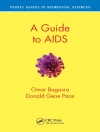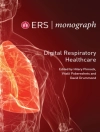Endophthalmitis is a serious eye infection that can cause blindness if not promptly diagnosed and appropriately treated. The goals of this book are to provide the latest information about endophthalmitis and offer recommendations for diagnosis and treatment.
Each chapter is written by experts in the field with the practicing clinician in mind. Several chapters focus on the major types of endophthalmitis such as postoperative, post-intravitreal injection, bleb-related, exogenous fungal, chronic, and endogenous endophthalmitis. Other chapters describe endophthalmitis in special populations such as diabetic or immunocompromised hosts or those with a glaucoma drainage device, keratoprosthesis, or other artificial implant. Also included are chapters that provide an overview of endophthalmitis as seen around the world, summarize current understanding of endophthalmitis pathogenesis, describe the latest microbiologic and molecular diagnostic techniques, and discuss emerging problems such as multidrug-resistant pathogens. A final chapter offers recommendations for ways to prevent this devastating eye infection.
Inhoudsopgave
Endophthalmitis: An Overview.- The Pathogenesis of Bacterial Endophthalmitis.- Microbiologic Diagnosis in Endophthalmitis.- The Molecular Diagnosis of Endophthalmitis.- Acute-onset Postoperative Endophthalmitis.- Chronic Endophthalmitis Masquerading as Uveitis.- Endophthalmitis after Intravitreal Injection.- Bleb-Related Endophthalmitis.- Post-Traumatic Endophthalmitis.- Endogenous Endophthalmitis.- Exogenous Fungal Endophthalmitis.- Device-Related Endophthalmitis.- Endophthalmitis in Immunocompromised and Diabetic Patients.- Antibiotic Resistance in Endophthalmitis Pathogens.- Preventing Endophthalmitis.
Over de auteur
Marlene L. Durand, M.D., is an Associate Professor of both Medicine and Ophthalmology at Harvard Medical School. She has been the Director of the Infectious Disease Service at Massachusetts Eye and Ear since 1997, and is on staff in the Department of Medicine at Massachusetts General Hospital. She has taught medical students, residents, and infectious disease Fellows for many years and won the faculty teaching award in the combined infectious disease fellowship program of the Massachusetts General Hospital and Brigham and Women’s Hospital. She is a Fellow of the Infectious Disease Society and holds board certifications in Internal Medicine and Infectious Diseases. She has repeatedly appeared in Best Doctors and Best Doctors in America. Her clinical and research interests have focused on eye infections, including endophthalmitis, keratitis, and infectious causes of uveitis, and otolaryngology infections. She is the author of more than 100 peer-reviewed articles, reviews, and book chapters.
Joan W. Miller, MD, FARVO, is Henry Willard Williams Professor of Ophthalmology and Chair of the Department of Ophthalmology at Harvard Medical School. She also serves as Chief of Ophthalmology at both Massachusetts Eye and Ear and Massachusetts General Hospital. An internationally recognized expert on retinal disorders, Dr. Miller is credited with co-developing verteporfin photodynamic therapy (PDT), the first pharmacologic treatment for retinal disease, and co-discovering the role of vascular endothelial growth factor (VEGF) in eye disease. Her research also demonstrated the therapeutic potential of VEGF inhibitors in eye disease, forming the scientific basis of antiangiogenic treatments for age-related macular degeneration (AMD), diabetic retinopathy, and related conditions. She has authored more than 200 peer-reviewed research articles, reviews, and book chapters. Additionally, she has been a member of the investigative team for 20 clinical trial reports and has edited several textbooks, including the 3rd edition of Albert and Jakobiec’s Principles and Practice of Ophthalmology. Her numerous honors include the 2014 António Champalimaud Vision Award, the highest distinction in ophthalmology and visual science, and the 2015 Mildred Weisenfeld Award for Excellence in Ophthalmology.
Lucy Hwa-Yue Young, MD, Ph D, FACS, is a Surgeon in Ophthalmology at Massachusetts Eye and Ear, and Associate Surgeon to the Affiliate Staff at Brigham and Women’s Hospital. Her clinical interests comprise various vitreoretinal conditions, including trauma-related complications, infectious retinitis, diabetic retinopathy, and AMD. A foremost expert in the diagnosis and management of uveitis and infectious retinitis, Dr. Young receives referrals from retina specialists throughout New England and delivers lectures both nationally and internationally. A Senior Scientist at Mass. Eye and Ear and Associate Professorof Ophthalmology at Harvard Medical School, she is conducting several lines of investigation to improve the diagnosis and treatment of ocular toxoplasmosis. Dr. Young has authored more than 90 peer-reviewed research articles, reviews, and book chapters. Additionally, she has been a member of the investigative team for 25 clinical trial reports. Since 2002 she has served as director of the Lancaster Course in Ophthalmology, which is the world’s oldest and largest ophthalmic educational course and draws ophthalmology practitioners and trainees worldwide. She has received multiple honors for teaching and mentoring, and has been recognized in America’s Top Ophthalmologists, Best Doctors in America, and Castle Connolly Top Docs.












